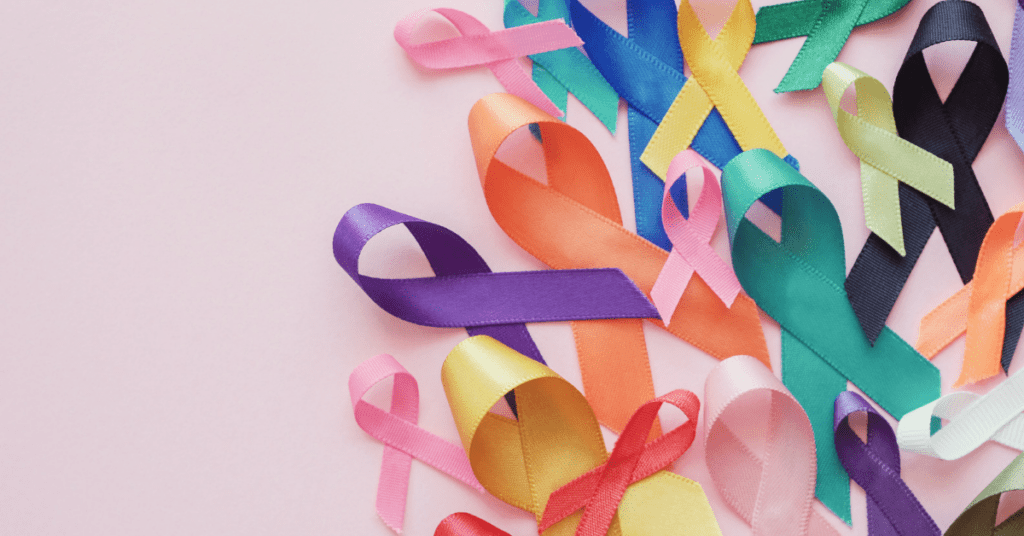There are many essential cancer lifestyle changes needed after a diagnosis, during treatment and recovery. At Aynjil, we understand that these cancer lifestyle changes can be challenging, but they are necessary for the overall wellbeing of the person fighting cancer.
We’re here to help you learn what you need to know about lifestyle changes after a cancer diagnosis and why they are so important.
Cancer and treatment affect everyone differently. The stage and type of cancer, age, previous existing conditions, cancer treatment plan, and the physical abilities or limitations of the patient all determine the lifestyle changes someone living with cancer needs to make.
Living With Cancer and Cancer Lifestyle Change
Physical Effects of Cancer on Your Lifestyle
Whether it’s due to surgery, depression, treatment-related fatigue, weakness, or body image-related issues, those living with cancer are physically affected by their diagnosis and treatment. These changes often result in a less active lifestyle for the cancer patient.
Those fighting cancer may also need to isolate themselves for medical reasons. Some cancer patients may even have to move residents while fighting the disease. However, moving locations is only necessary if a patient needs to be closer to available treatments to avoid harmful environmental toxins or when medical professionals need to monitor a patient closely.
Social Effects of Cancer on Your Lifestyle
Treatment schedules and the side effects of chemotherapy and radiation impact the social lives of those fighting cancer. Cancer patients might miss important life events like birthdays or weddings because they feel unwell, weak, depressed, or exhausted from treatment.
Someone living with cancer may also lose contact with people because they aren’t able to host functions or attend events as usual. Sadly, sometimes people will withdraw from their loved ones after a cancer diagnosis because of their fears of illness and death, often resulting in significant cancer lifestyle changes to the patient’s social circle and social life.
Financial Effects of Cancer on Your Lifestyle
The huge financial strain cancer puts on a family can result in drastic lifestyle changes to accommodate the added costs of treatment, doctor and specialist visits, and the new cancer lifestyle changes of the patient.
Medications, transport to appointments, therapies, blood tests, and cancer carers may take financial priority, meaning there’s less money for family luxuries, such as eating out, new tech, travel and personal grooming activities, for example. In many cases, families go bankrupt trying to cover the costs of treatments, hospital bills and therapies without cancer insurance or medical aid.
Lifestyle Changes During and After Cancer Treatment
After treatment, cancer lifestyle changes can include diet, exercise, habits, routines, and even personal care products (due to harmful chemicals). Below are examples of some of the lifestyle changes needed during and after treatment:
Cancer Lifestyle Changes
After a cancer diagnosis, most patients have to make adjustments to lead a healthier lifestyle. To help the cancer patient’s body cope with treatments and the side effects of cancer, medical professionals will recommend healthy lifestyle changes to help prepare the body and boost the immune system.
These healthy lifestyle changes often include:
- Exercise
- Medication
- Vitamins
- A change in diet
- Addition of a sleep routine
- Increased hydration
- Stopping the use of harmful substances, such as tobacco, alcohol, etc.
- Changes in personal care products and cleaning products
Nutrition Changes for Cancer Patients
Nutrition and diet play a big part in the human body’s ability to cope with treatments and recover. That’s why a healthy eating plan is one of the most well known and recommended cancer lifestyle changes.
During and after treatment, cancer patients diets may vary depending on their needs. Some patients, while undergoing treatment, may need soft or liquid diets as oral ulcers and thrush can make getting proper nourishment and even eating difficult. After treatment or during recovery, patients may need to meet specific nutritional needs to gain weight lost during treatment or to help the body recover.
A single diet or meal plan doesn’t meet every patient’s needs, which is why we advise speaking to a medical professional regarding your or a loved one’s nutritional needs during and after cancer treatment.
These are some of the benefits of good nutrition during and after cancer treatment:
- Muscle preservation and support
- Immune system support
- Increased quality of life
- Increased energy levels
A Focus on Mental Health After Diagnosis and Treatment
Cancer diagnosis and treatment can take an emotional toll on a patient and their loved ones. Receiving a cancer diagnosis is a traumatic event, making adopting good mental health practices, such as seeing a psychologist regularly, one of the important cancer lifestyle changes patients and their families need to make.
Those living with cancer can practice good mental health by including the following in their lifestyle:
- Go to group therapy or counselling
- Regular social interactions (if possible)
- Meditation
- Practising mindfulness
- Journaling
- Practising self-care
Cancer and Privacy
One of the hardest cancer lifestyle changes to accept after diagnosis is a patient’s loss of privacy. From giving doctors intimate details of their lifestyle, habits and family life to investigations into previous and family medical history, cancer is a disease that doesn’t afford most patients the luxury of privacy.
Terminal patients who need a carer or patients who need palliative care don’t have privacy when changing and bathing. Those who are incontinent don’t often have the privacy of a closed bathroom door because they need assistance with waste elimination and ablutions.
Health Tips for Cancer Patients
When it comes to living a healthier life with cancer, there isn’t a one-size-fits-all strategy. People and their resources are different, and every cancer case is unique, but adopting healthy habits is proven to impact recovery. Here are 15 health tips to help those fighting cancer make positive cancer lifestyle changes:
Lifestyle:
- Exercise daily.
- Floss and brush your teeth daily.
- Relax with meditation, music therapy or massage.
- Stop substance use/abuse such as alcohol, tobacco, etc.
- Spend time outside to ensure healthy Vitamin D levels.
- See a psychologist/go for counselling.
Sleep:
- Start a bedtime routine.
- Keep your bedroom as dark as possible.
- Avoid screen time before bed, including TVs, smartphones, and tablets.
- Avoid stimulants like caffeine, alcohol, and sugars.
Diet:
- Change your diet to include whole grains, lean proteins, vegetables, and fruits, or as directed by a medical professional.
- Avoid unhealthy saturated fats and trans fats.
- To support a healthy gut, add probiotic and prebiotic foods to your diet.
- Eat smaller portion sizes frequently throughout the day.
- Avoid processed meats.
How Can I Improve the Life of Cancer Patients?
Helping a loved one with cancer and improving their quality of life is very easy if the patient is willing to accept your assistance. Sometimes those who receive a cancer diagnosis will reject help. This rejection often isn’t a reflection on you but rather because receiving assistance makes them feel like they have lost their independence, they are a burden or are weak.
As a friend, caregiver, or someone who is part of their support system, here is what you can do to assist someone coping with their new cancer lifestyle changes, emotionally and physically:
- Be a friend/confidant to ease emotional stress.
- Be a source of comfort and positivity to motivate the cancer patient.
- Join exercise activities/plan walks to encourage exercise.
- Provide transport to reduce patient stress and financial burden.
- Assist with meal plans and cooking to help with proper nutrition.
- Do grocery shopping to assist with nutritional needs.
- Help with child care to reduce financial and emotional stress.
- Provide physical support by assisting the patient’s family.
- Help with legal documents and accounts, like car licence renewals, grant applications, or paying bills to reduce stress.
- Arrange outings or activities (if possible) to promote social interactions and reduce emotional stress.
Lifestyle Changes for Cancer Prevention
Unhealthy habits and external factors can result in various types of cancer. Here are 12 healthy lifestyle changes you can make to help prevent cancer:
- Don’t smoke or use tobacco products.
- Limit alcohol use.
- Don’t use illegal or restricted substances.
- Eat a healthy diet and avoid processed foods and sugar.
- Limit stimulant use, such as caffeine.
- Drink clean water and stay hydrated.
- Exercise daily.
- Maintain a healthy body weight, and avoid obesity.
- Make good quality sleep a priority.
- Avoid radiation exposure and environmental toxins.
- Get enough Vitamin D, calcium and omega-3s.
The above healthy lifestyle changes may assist you in preventing some types of cancer. But leading a healthy life will not fully protect you from all cancers.
Protecting Yourself from Hereditary Cancer
Having hereditary cancer in the family does make avoiding a cancer diagnosis a little harder (you are 3-10% more likely to receive a cancer diagnosis). However, with regular checkups and the health tips above, those with hereditary cancer can live cancer-free lives.
If you have patterns of cancer in your family, we recommend you investigate what your body needs to stay healthy and how cancer insurance can help you.
Don’t be left in an unthinkable situation, like facing a diagnosis with insufficient financial support to make the necessary cancer lifestyle changes needed. Invest in cancer insurance and put your mind at ease.



